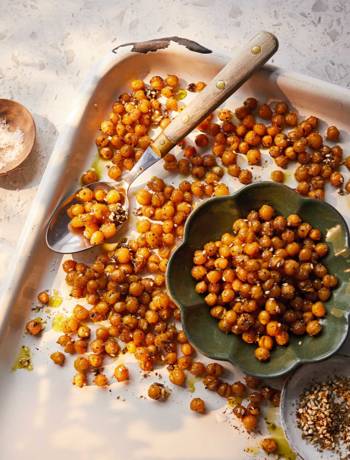Health
How to have a healthy gut
by Helen Foster
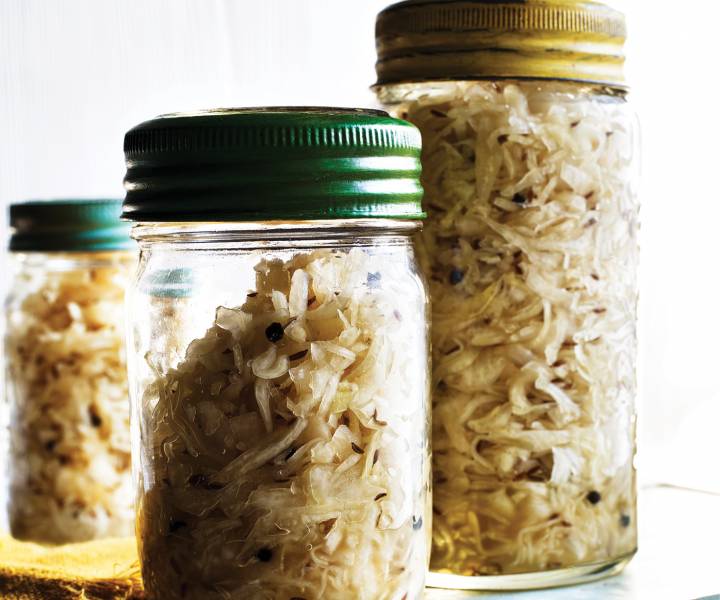
With at least a dozen books set to be published on the subject this year, we’re not exaggerating when we say that your gut is the hot health topic of 2017. Trend forecasters have named ‘digestive wellness’ as one of the biggest growth areas of the year; the BBC dedicated a wedge of prime time TV to a documentary exploring how to have a healthy gut, and you can even send off a sample of poop in the post to get your levels of good and bad gut bacteria measured via mapmygut.com.
Until recently, the scientific community was sceptical about the link between health issues and out-of-whack bacteria. But today, a growing body of research is backing the claims long made by nutritionists that taking care of our gut could provide a rocket boost to our physical and emotional health.
‘There are 100 trillion microbes, mostly bacteria, living in and on your body,’ explains nutrition expert Amanda Hamilton, co-author of new book The G-Plan Diet (Aster, £8.99). ‘Most of these are in your large intestine, where they weigh a hefty 1.36kg and are known collectively as your microbiome. Everyone’s microbiome is unique like a fingerprint, which makes it a very exciting new area of research, and what we are starting to understand is that those trillions of bacteria in your gut may play a role in health throughout the body by sending signals to your brain that influence weight, appetite and mood as well as your general health.’
It was research carried out by Rouen University that most recently alerted scientists to the appetite-gut connection. The study showed that gut bacteria help regulate your satiety hormones, which signal to the brain whether or not you’re full. They may also have a role in regulating metabolism, suggests research at the University of Iowa – experiments in mice show that altered gut bacteria can lower metabolic rate by up to 16%, the equivalent of eating an extra cheeseburger a day. And it doesn’t stop at your appetite – an Oxford University study has shown that boosting levels of gut bacteria leads to lower levels of stress hormones.
‘When the gut is in balance, it supports all of our systems,’ says Amanda Hamilton. ‘On a very basic level it makes sense – we process nutrients and calories from the gut so you may not absorb everything you need from the food you eat if its not working well. In addition, some scientists believe that it could lead to other health issues.’ Research in Israel linked type 2 diabetes to imbalanced gut bacteria, and a study published by the European Society of Cardiology found that bad gut bacteria can create by-products that are linked to heart disease.
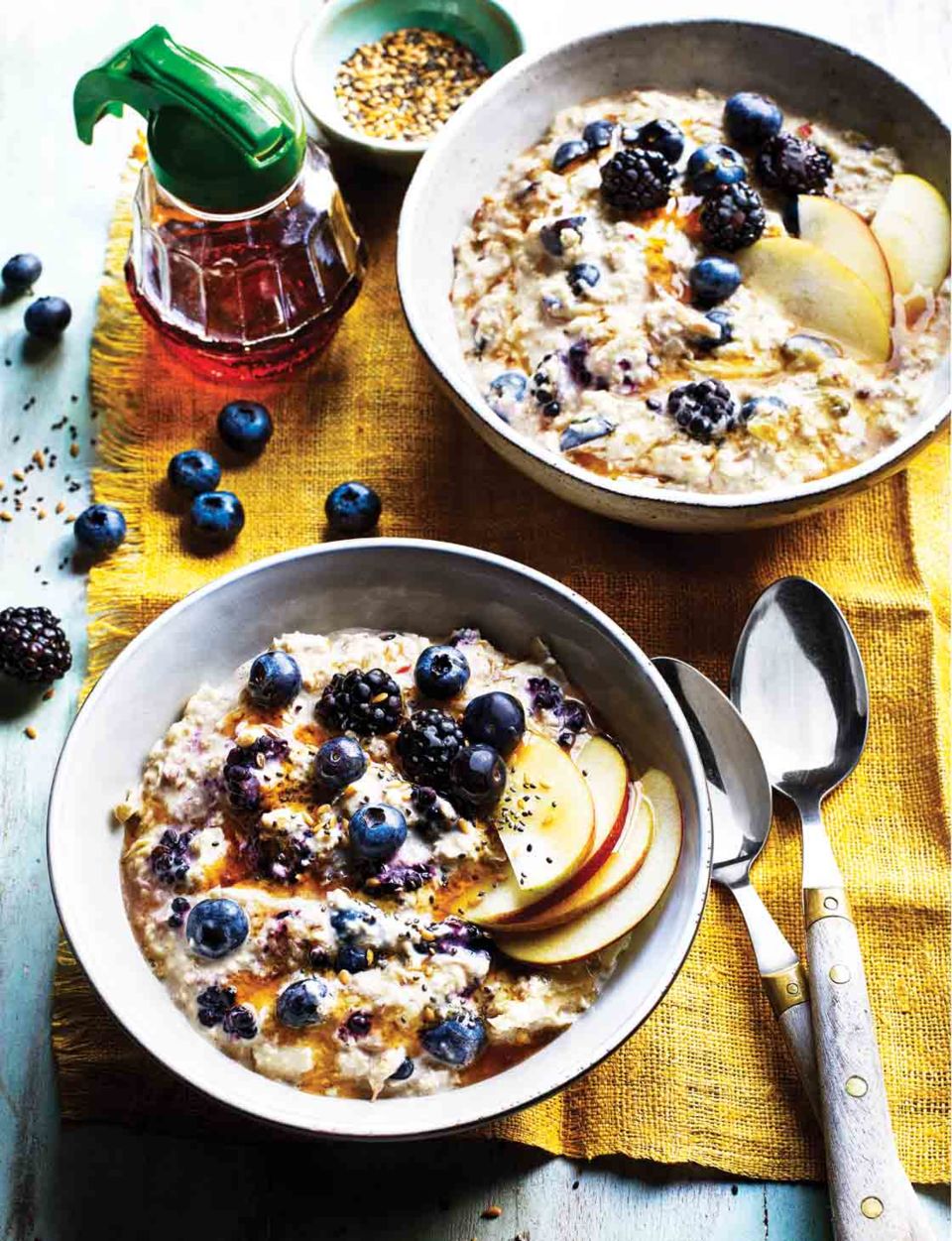
Recipe above: Apple, blackberry and blueberry bircher muesli - a source of soluble fibre.
How healthy is your gut?
When it comes to the mix of bacteria is contains, the answer is, not always. A 2013 study from the University of Copenhagen found that almost a quarter of people studied had 40% fewer bacteria than would normally be expected in a healthy gut – and the bugs they did have were more likely to be those prone to causing inflammation than the health promoting bacteria that fight it. Our body often alerts us to this but we just don’t listen. ‘About one in four people experience symptoms that say their gut isn’t in the greatest of health – but just think they are normal,’ says nutritionist Benjamin Brown, author of the newly updated and expanded The Digestive Health Solution (Exisle, £14.99). ‘If you experience bloating, constipation, loose bowels, discomfort or pain in your abdomen it’s all a sign that something is amiss with your digestion – possibly caused by imbalances in the bacteria in the gut.’
The first step towards boosting gut health is therefore to remove foods suspected of causing bacteria imbalance. ‘Processed foods full of additives, sugar and high levels of saturated fat are not friends to your gut,’ says Amanda Hamilton. ‘Take these out of your diet and focus on eating fresh, natural foods.’ If you suffer from IBS, it’s worth genning up on foods containing a group of sugars known as FODMAPS - see box below for more information. And if you think gluten upsets you, see your GP and consider an elimination plan to see if you symptoms improve.
The next step is to start eating more foods that help gut bacteria to thrive. Brown calls these the three Ps – probiotics, prebiotics and polyphenols. ‘Probiotics are live bacteria found in many foods and they have been used to improve digestive health successfully for many years. Fermented foods such as yogurt, kefir (a fermented milk drink), kimchi and sauerkraut are all excellent examples of natural, probiotic rich foods,’ he says. The jury is still out on the effectiveness of probiotic supplements; research by the BBC’s Trust Me I’m A Doctor team showed that consuming the natural probiotic drink kefir created a greater rise in number and variety of bacteria in the gut than taking manufactured probiotic drinks.
Next, ensure you are eating enough prebiotics - natural fibres found in plant foods that we can’t digest but that our gut bacteria use for fuel, says Brown. ’Although some foods are higher in prebiotics than others, variety in the diet is more important for a diverse bacteria balance. Try to include lots of different fruits, vegetables, herbs, spices, wholegrains, beans and legumes in your diet regularly.’ And focus on richly coloured fruit and veg – bacteria-boosting polyphenols are responsible for their colours. Lycopene, for example, gives the red to watermelon and tomatoes, and anthocyanins are the blue in blueberries.
Lastly, be careful about fibre. If your digestive system is sensitive, too much of rough, insoluble fibre found in cereals like bran can actually aggravate IBS and bloating, says Patrick Holford, nutritionist and author of Improve Your Digestion (Piatkus, £14.99). ‘Instead, eat the gentler soluble fibre found in fruits, vegetables, oats, and chia seeds. Making some small changes like these could be all it takes to get a happier gut, and subsequently, a healthier, happier you.’
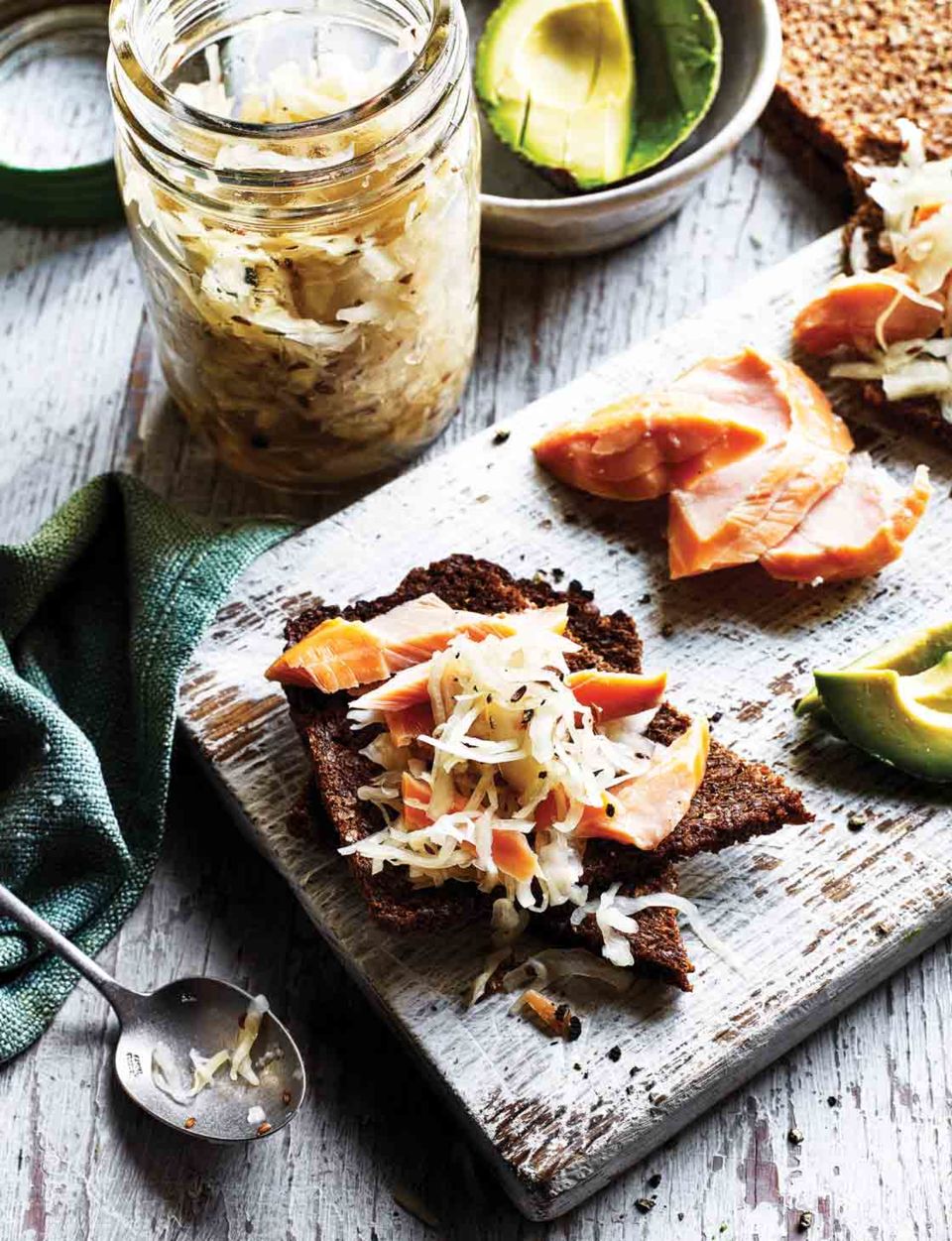
Recipe above: Sauerkraut - full of beneficial bacteria.
FODMAPs: The food group to know about
FODMAPs are a group of sugars found in a large number of foods. The name is a shortened version of their full title - Fermentable Oligosaccharides, Disaccharides, Monosaccharides and Polyols and they are strongly linked to symptoms of IBS and bloating.
‘Unlike most of the foods we eat, the sugars in FODMAPs can’t be digested by the body,’ explains gastroenterologist Professor Peter Whorwell, author of Take Control of Your IBS (Vermilion, £12.99). “They enter the colon and the bacteria that live there then use them as food. As they do this they produce chemicals that irritate the gut lining and make gas. In most people this doesn’t cause any problems, but if the gut is oversensitive it causes symptoms like bloating, discomfort and diarrhoea.”
In one trial, avoiding foods that contain FODMAPs was shown to reduce IBS symptoms in 76% of sufferers. This isn’t easy though – lots of foods contain FODMAPs including anything containing wheat, dairy foods, fruits like apples, pears and peaches and vegetables including onions and asparagus. The good news is you’re unlikely to react to all of them and so while at first you need to cut out all FODMAP foods and see what happens to your symptoms, after four weeks, you should start adding foods back into the diet to isolate your specific triggers. This can be a tricky process so it’s best done with help from a dietician or, try the FODMAP app (at iTunes and Googleplay, £3.99 a year) created by FODMAP researchers at Kings College in London.
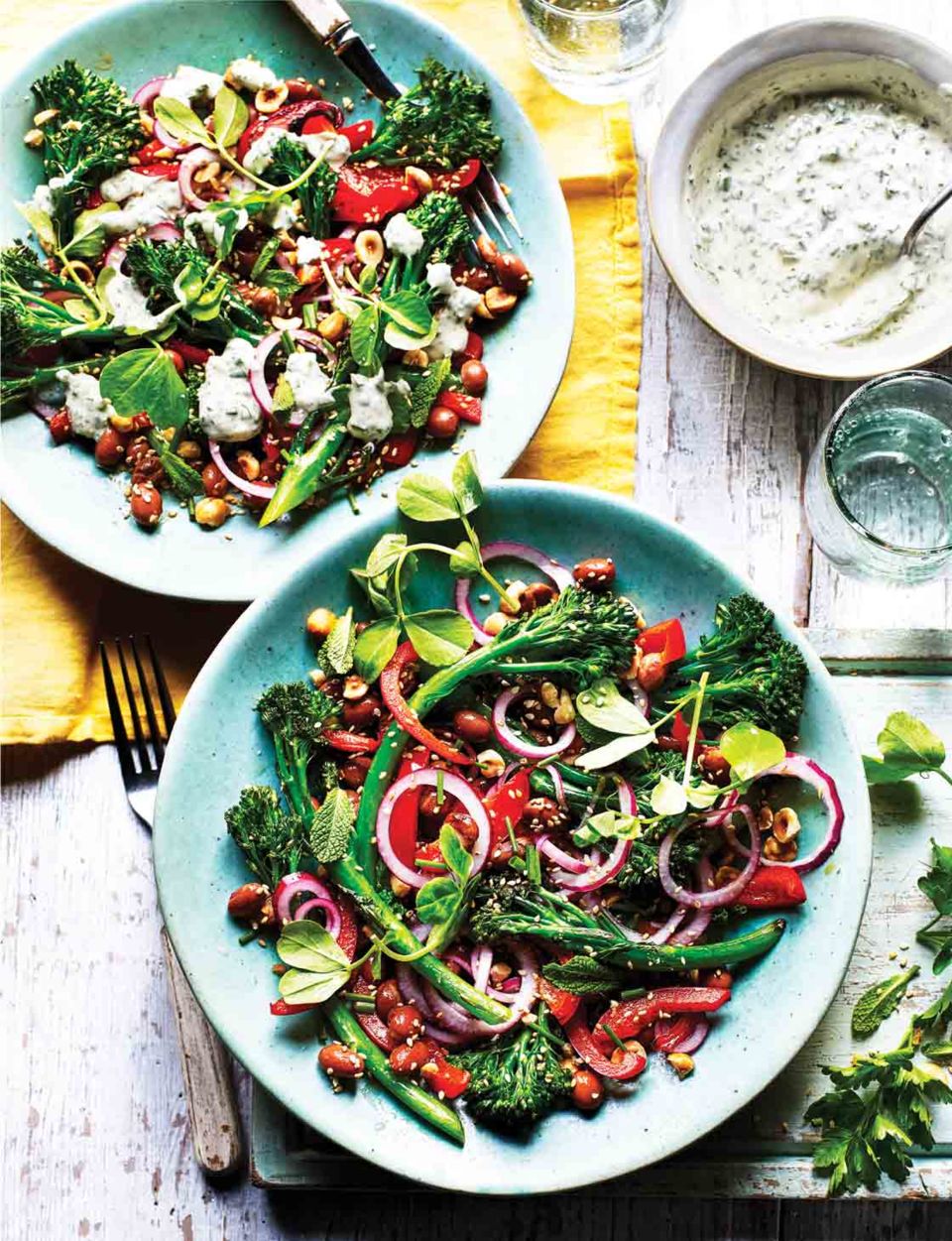
Recipe above: Charred broccoli, borlotti bean and hazelnut salad with herbed yogurt dressing - bio yogurt is great for your digestion.
The trouble with gluten
For the last year or two, gluten has been public enemy number one blamed for all manner of health woes. It’s an issue that’s dividing the medical community with some experts saying that unless you have coeliac disease there’s no reason why gluten is harmful, and other researchers claiming they can clearly see negative reactions in the guts of people who say they are sensitive to gluten.
If you think gluten upsets you, the first thing to do is to be tested for coeliac disease. Up to 76% of people with this reaction to gluten are undiagnosed and might be putting their symptoms down to IBS.
If you’re not coeliac, Patrick Holford says that rather than immediately banning all gluten containing foods try switching to those made from kamut. ‘This is an older type of wheat and while it contains gluten some studies show that people who can’t eat gluten can consume kamut,’ he says.
If you still suffer symptoms, excluding gluten could be the key to good digestive health. ‘Some people with IBS are genuinely sensitive to gluten even though the screening test for coeliac disease comes up negative,’ says Professor Whorwell.
Don't miss our best-ever gluten-free recipes.












